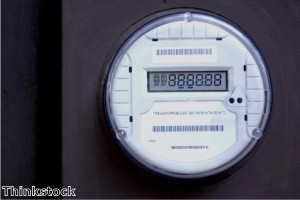Concerns raised over smart meter privacy
If smart meters are to be widely adopted and welcomed into homes around the European Union then concerns over privacy must be addressed.
This is the view of the European Data Protection Supervisor, which has warned that the devices could reveal sensitive personal data that may be used to 'snoop' on people.
For example, the information stored by a smart meter would show whether a household was using certain medical devices or baby monitors.
Similarly, the technology could reveal what people do with their spare time or give clues as to which times of the day or week they are away from their homes according to how hard their electrical consumer unit is working to distribute energy around the property.
The watchdog conceded that smart meters can play a part in helping homeowners bring down their energy usage and subsequently reduce their carbon footprint.
But it insisted there are no guarantees that the companies who collect the data from these devices would not use it to "infer information about domestic activities".
Targeted marketing and advertising is one possible use of the information, but there are also worries that it could fall into criminal hands, leaving homeowners open a number of risks.
The European Commission intends to roll out smart meters across the continent by the end of this decade, but the EDPS is insistent that before this happens, robust security and data protection measures must be put in place.
But privacy concerns don't seem to be slowing down the market for smart meters, as figures from IDC Energy Insights show that the global industry shipped almost seven million of the devices in the first quarter of this year, up 28.8 per cent on the same period in 2011.
"Smart meters are no longer a matter of 'if' but a question of 'when' and 'what form'," said senior research analyst Dean Chuang.
He added: "Smart meters are becoming less expensive, and vendors and local utilities are increasingly developing solutions appropriate for the needs and smart grid aspirations of the local market."

